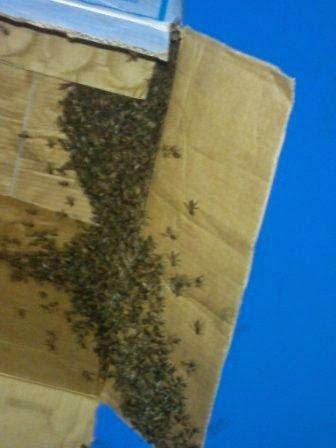Agriculture is the practice of cultivating land, rearing animals, keeping bees and keeping birds.
First of all agriculture is fully functional when there is rainfall that is to irrigate the land in order to grow what is sown. Therefore every aspect of agriculture has to be influenced by rainfall forexample animal keepers need rainfall for pastures to grow and later they feed it to the animals. The crop growers also depend on rainfall for water to irrigate their crops in order to grow into useful produce. The beekeepers in a same way need rainfall for the plants to produce flowers where bees will collect nectar from for storing as honey and their food.
Everyone involved in agriculture directly especially in beekeeping should take note of the following; agriculture has risks and uncertainities: therefore beekeeping has risks and uncertainities.
Beekeeping is faced with risks and uncertainities like flactuations in production (yields vary according to season), yields are unpredictable and asset availability especially in african bees is unpredictable (bees can abscond any time).
Beekeeping is seasonal! I always tell people who normally ask me for honey especially when i don't have honey that honey is not available until the next season. And they ask me why? ....we thought you just go to the hive and pick more honey like a brewer could with alcohol....
....and this is my casual answer; bees are like beans which germinate, grow and flower during the rainy season or rainy months and then dry during the dry months. So for the case of bees, they have to wait for flowers to come and they collect nectar and they must make sure they store enough nectar which turn into honey which is their lifeline food when there are no flowers or during dry season and the bees have never kept honey for humans!
Therefore beekeeping is seasonal and has risks and uncertainities like any other agricultural practice; production will vary depending on the season's influencing factors such as rainfall, pests and diseases, management and many others.
New beekeepers don't think that it's a matter of hunging a KTBH and then go back to harvest 25kg of honey for everytime you go to work the hive.
First of all agriculture is fully functional when there is rainfall that is to irrigate the land in order to grow what is sown. Therefore every aspect of agriculture has to be influenced by rainfall forexample animal keepers need rainfall for pastures to grow and later they feed it to the animals. The crop growers also depend on rainfall for water to irrigate their crops in order to grow into useful produce. The beekeepers in a same way need rainfall for the plants to produce flowers where bees will collect nectar from for storing as honey and their food.
Everyone involved in agriculture directly especially in beekeeping should take note of the following; agriculture has risks and uncertainities: therefore beekeeping has risks and uncertainities.
Beekeeping is faced with risks and uncertainities like flactuations in production (yields vary according to season), yields are unpredictable and asset availability especially in african bees is unpredictable (bees can abscond any time).
Beekeeping is seasonal! I always tell people who normally ask me for honey especially when i don't have honey that honey is not available until the next season. And they ask me why? ....we thought you just go to the hive and pick more honey like a brewer could with alcohol....
....and this is my casual answer; bees are like beans which germinate, grow and flower during the rainy season or rainy months and then dry during the dry months. So for the case of bees, they have to wait for flowers to come and they collect nectar and they must make sure they store enough nectar which turn into honey which is their lifeline food when there are no flowers or during dry season and the bees have never kept honey for humans!
Therefore beekeeping is seasonal and has risks and uncertainities like any other agricultural practice; production will vary depending on the season's influencing factors such as rainfall, pests and diseases, management and many others.
New beekeepers don't think that it's a matter of hunging a KTBH and then go back to harvest 25kg of honey for everytime you go to work the hive.



